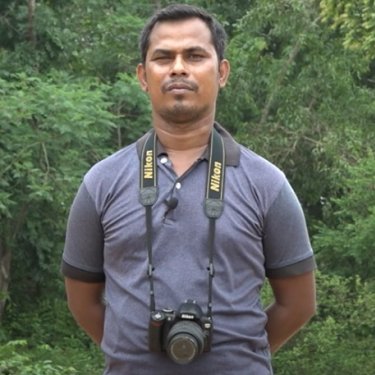Bangladesh: Rohingya photographer charged after covering Rohingya refugee transfer

Reporters Without Borders (RSF) calls for the withdrawal of all charges against a well-known photographer of Rohingya origin who was finally released on bail this morning but is still facing up to three years in prison following his arrest in southeastern Bangladesh last week while covering the forced relocation of 200,000 Rohingya refugees to a controversial new camp.
Police held Abul Kalam illegally after arresting him at Kutupalong camp, 30 km south of the city of Cox’s Bazaar, on 28 December as he was photographing buses leaving with Rohingyas from this overcrowded refugee camp – the world’s biggest – to take them to a new camp on Bhasan Char, a remote island in the Bay of Bengal run by the Bangladeshi navy.
Kalam was taken to a police barracks in Cox’s Bazar, where he was tortured and held for more than 60 hours, although Bangladeshi law limits police custody to a maximum of 24 hours, a local source told RSF.
He was brought before a judge on 31 December and was accused of assaulting public servants and obstructing them while they were discharging their duties, charges that carry a possible three-year jail sentence.
When reached by RSF, Kutupalong camp administrator Khalilur Rahman tried to justify Kalam’s arrest by referring to an “unidentified fugitive” and suggesting that Kalam had been complicit in an alleged attack on police officers by Rohingya refugees on 28 May 2020.
International interest
According to RSF’s source in Cox’s Bazar, Kalam was arrested because the local authorities are annoyed by his coverage of their handling of the Rohingya refugee issue, in particular, the forced transfer of the refugees to Bhasan Char, which is widely criticized in part because this low-lying island is prone to flooding.
“Arresting a photographer for covering one of the world’s most disturbing humanitarian crises is absolutely unacceptable,” said Daniel Bastard, the head of RSF’s Asia-Pacific desk. “We call on the authorities in Cox’s Bazar to drop these absurd charges. His work is of public interest for all of humankind, which needs to know about the fate of the Rohingyas, who are being mistreated again, three years after being subjected to acts of genocide by Myanmar’s military.”
Kalam is himself of Rohingya origin, having fled Myanmar while a child 28 years ago. His photographic coverage of the living conditions for his fellow Rohingyas at the Kutupalong refugee camp complex recently received an award. He is also the subject of a short documentary on YouTube in which he explains his work in the world’s biggest refugee camp.
Bangladesh is ranked 150th out of 180 countries in RSF's 2020 World Press Freedom Index.



